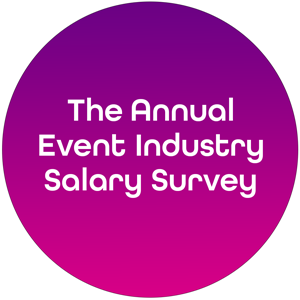In last month’s column, my advice was targeted at the job seeker, so for this month, I’d like to share some advice for the employer / the interviewer.
First things first, all interviewers have to remember that the interview is a two-way thing; it’s not just a process to enable you to make a decision, the job seeker has a choice to make too. They need to decide if your company is right for them, and what you say and do will impact hugely on this choice.
The interview process starts from the very moment they apply and this process is called the candidate experience. I’ve written about the full candidate experience before (CN December 2021) so this is just a brief refresher before I dive into the interview itself.
The candidate experience is made up of every single interaction the jobseeker has with your company and this experience will ultimately shape whether they want to work for you. Creating a good candidate experience is crucial and should be anchored on a respectful relationship. Set your parameters from the outset, clearly communicate the process and key dates to all job seekers. Add a note to the job advert saying that if they haven’t received a response in 72 hours, then they should get in touch. If you say that you’ll contact them on Friday, then do it; even if you haven’t any concrete news for them. Treat jobseekers as a human being and be respectful of their time and what they are going through.
When it comes to the interview itself, there are several things you can do:
Read the CV the week before the interview. Or even just two days before so that when you read it whilst walking to the interview you are just scanning it to refresh yourself and not reading it for the first time.
Treat the interview as an event – and prep for it accordingly. Set some time in the diary for the interview panel to meet and discuss the applicants. Discuss the process and decide who is your decision maker, and who is going to ask the questions
Sense check your questions and make sure they are relevant. There will be areas on the CV that you need to cover and there will be areas where the candidate has gaps. What specific challenges will they face in the role? Create two or three questions to explore these challenges with them. If you are going to ask three different people, three different sets of questions, how are you going to judge their answers so you can compare them? What are you asking and what relevance are the questions?
Remember that there’s a reason why you are recruiting. It’s because you don’t have anyone in your team who can do the job and you have the budget. Establish the reasons why you’re recruiting, drill down and make the questions around those reasons.
Use a scoring matrix. Write some linear questions to ask everybody and then give them a score (use a scoring of one to four, never go up to five because people will gravitate to the midpoint of three). Personal preferences of who likes which candidate is subjective and not based on fact so having the scores to look over will help you to make an impartial decision. The questions and scoring matrix should be linked to the job description – for example if the job description states that leadership is 70% of the role, then the questions (and scoring) should reflect this.
Always interview with two people. You need one person to listen while the other talks because you can’t do both (nobody is that talented!). Then you’ll need three people for the final stage interview – just in case you can’t make a unanimous decision. The MD may say yes, whilst the department head says no, so establishing who is the ultimate decision maker is important.
Don’t follow your gut (unless it says no). This is the biggest single mistake that hiring managers and hiring teams make. If your gut says no, then you should listen to it. But if your gut says yes, you need to sense check the decision.
Be clear about each stage of the interview process. The first interview will probably be an informal chemistry meeting. I say ‘informal’ but lots of judgements and decisions (by both parties) are made at this point. Personally, I think these should be done face to face and not over video (except if a company is a ‘remote first’ business or the candidate is overseas). Stage two is then more competency based; by this stage the job seeker has decided that they would like to work for you, and you have decided that they would be a good employee. This is the time to assess their skills and experience and compare it to the role’s needs. Salary expectations and negotiations will also take place during this interview. Having a third interview isn’t always necessary but it may be where the candidate meets the wider team or the senior management team.
Take your time, but stick to your timings. People rush to recruit and make mistakes. Your time to hire metric is key here, this is measured from when an applicant applies for your vacancy, to when you offer. For me, this should be 2-4 weeks depending on seniority, diaries etc. as everyone involved needs time to prepare and reflect on what is, a very important decision in their life, their next career step.
Every agency website states that it’s their people that set them apart; invest the time, care and consideration to choose them wisely.






